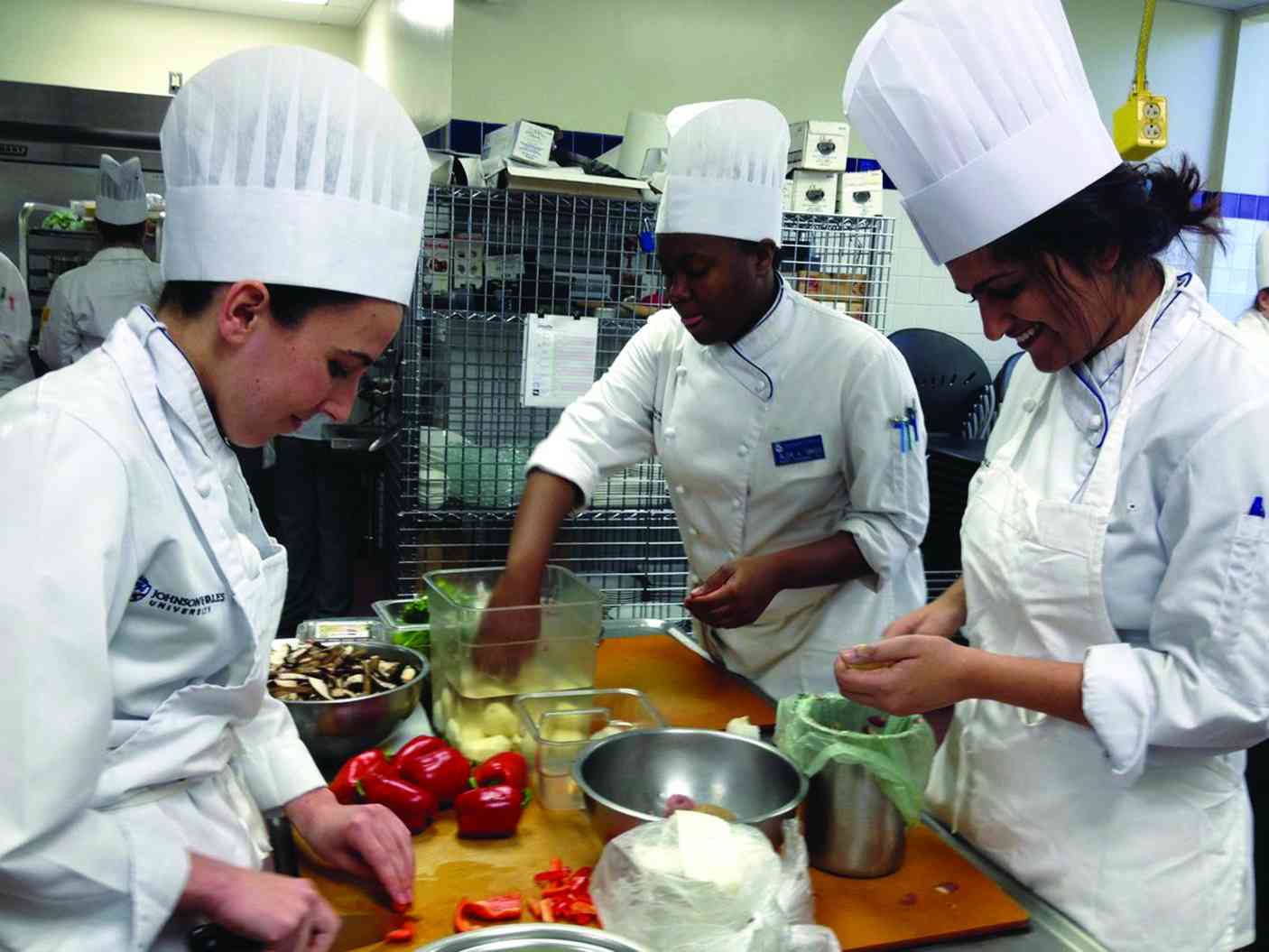
The kitchen is often considered the heart of any restaurant, and for good reason. It’s where culinary magic happens and where a team of skilled professionals work together to create dishes that delight and satisfy the senses.
However, behind the scenes, the kitchen can be a chaotic and fast-paced environment, where mistakes can have serious consequences. In this high-pressure setting, teamwork is not just important, it is essential. In this article, we will explore the importance of chef teamwork in a busy professional kitchen.
Effective communication is key
In a busy kitchen, communication is crucial. When every second counts, clear and concise communication can mean the difference between a dish being delivered on time and a disaster unfolding on the plate.
A well-oiled kitchen team relies on each chef and cook communicating effectively with one another to ensure that orders are fulfilled and plates are delivered efficiently.
For example, a line cook may yell out “Pick up!” to signal to the dishwasher to retrieve a clean plate, while the sous chef may shout “Plate up!” to let the expeditor know that a dish is ready to be sent out. This seamless communication ensures that everyone is on the same page, working towards a common goal.
The power of trust
Trust is another essential component of effective chef teamwork. When chefs trust one another, they can rely on each other to get the job done, even in the most stressful moments. A confident team knows that their colleagues have their backs, and that together, they can tackle any challenge.
- Outrage over release of cable-thieving cops
- PR & communications: Seven reasons why internal communications is important
- SA delegation calls for Musina/Beitbridge synergies
- Cops arrested for conning ICT perm sec
Keep Reading
For instance, when a dishwasher breaks down during peak service, a trusty team will rally together to find a solution. One chef may take on extra duties while another quickly cleans up the mess, all while maintaining a calm and composed demeanour.
The value of morale
Morale is another vital aspect of chef teamwork. When chefs are happy and motivated, they are more productive and focused, leading to better food quality and customer satisfaction. A positive kitchen culture breeds camaraderie and esprit de corps, making it easier for chefs to work together as a cohesive unit. A high-morale kitchen is also more likely to attract and retain top talent. Who wouldn’t want to work in an environment where colleagues support and uplift one another? When chefs feel valued and appreciated, they are more likely to stay with the team long-term.
The benefits of cross-training
Cross-training is an excellent way for chefs to develop new skills and stay sharp in their roles. By learning new tasks and responsibilities, chefs become more versatile and adaptable, making them invaluable assets to the team. For example, a sous chef may learn how to manage inventory or assist with menu planning, while a line cook may pick up knife skills or learn how to prep ingredients for future dishes. Cross-training not only enhances individual skills but also fosters collaboration and problem-solving.
The art of adaptability
Adaptability is another essential quality in a busy kitchen. Chefs must be able to pivot quickly when things go awry — whether it’s a last-minute menu change or an equipment failure. By remaining calm and flexible, teams can recover from setbacks and maintain service standards. For instance, when a key ingredient runs out mid-service, an adaptable team will quickly adjust menu offerings or substitute with alternative ingredients to ensure customer satisfaction.
Conclusion
In conclusion, chef teamwork is the backbone of any successful professional kitchen. Effective communication, trust, morale, cross-training and adaptability are all crucial components of a harmonious kitchen culture. When chefs work together as one cohesive unit, they can overcome even the most challenging obstacles and deliver exceptional dining experiences.
In the fast-paced world of professional cooking, teamwork is not just a nicety — it’s a necessity. By recognising the importance of chef teamwork, kitchens can build strong foundations for success, attract top talent and create memorable dining experiences that keep customers coming back for more.
So next time you step into your favourite restaurant or diner, take a moment to appreciate the unsung heroes behind the scenes — the chefs who work together in perfect harmony to bring you delicious food and exceptional service.
Building a strong and supportive teamwork with a chef in a kitchen requires effective communication, clear roles and responsibilities, and a positive and respectful work environment.
Here are some points and advice on how to achieve this:
Establish clear communication
— Encourage open and respectful communication among team members.
— Set clear expectations and goals for the team.
— Encourage feedback and active listening.
Define roles and responsibilities
— Clearly define each team member's role and responsibilities.
— Ensure each team member understands their duties and how they contribute to the team's success.
— Establish a chain of command to avoid confusion.
Create a positive work environment
— Foster a positive and respectful work atmosphere.
— Encourage teamwork, collaboration, and mutual support.
— Recognise and reward individual and team achievements.
Emphasise teamwork
— Encourage team members to work together as a cohesive unit.
— Foster a sense of ownership and accountability among team members.
— Celebrate team successes and learn from failures together.
Chef’s leadership
— The chef should lead by example, demonstrating respect, empathy and patience.
— Encourage the chef to be approachable, open to feedback, and willing to listen to ideas.
Mentorship
— Pair experienced team members with newer staff to provide guidance and support.
— Offer training and development opportunities to help team members grow professionally.
Conflict resolution
— Address conflicts promptly and fairly.
— Encourage open communication to resolve issues before they escalate.
Recognition and rewards
— Recognise individual and team achievements publicly and privately.
— Offer incentives, bonuses, or promotions for outstanding performance.
Professional development
— Provide ongoing training and education opportunities to stay up-to-date with industry trends and techniques.
— Encourage cross-training to develop new skills and broaden knowledge.
Positive feedback
— Provide regular positive feedback to boost morale and motivation.
— Focus on specific behaviours or actions that are contributing to the team’s success.
Additional tips
Encourage teamwork by assigning tasks that require collaboration, such as menu planning, inventory management, or event planning.
Create a “kitchen culture” by promoting values like respect, trust and open communication.
Conduct regular team-building activities or social events outside of work hours to foster bonding and camaraderie.
Consider implementing a “buddy system” where new staff are paired with an experienced team member for support and guidance.
By following these tips, you can build a strong and supportive teamwork with your chef in the kitchen, leading to increased productivity, job satisfaction and overall success.
- Muzamhindo is a young chef with five years experience in a professional kitchen and has enjoyed the concept of food since the tender age of two. She is a perfectionist, meticulous in the kitchen, works well under pressure and absolutely loves good food! Her specialties range from using indigenous ingredients to fine dining, gourmet food, gluten-free, vegan dining, food health and safety and food research and development.











